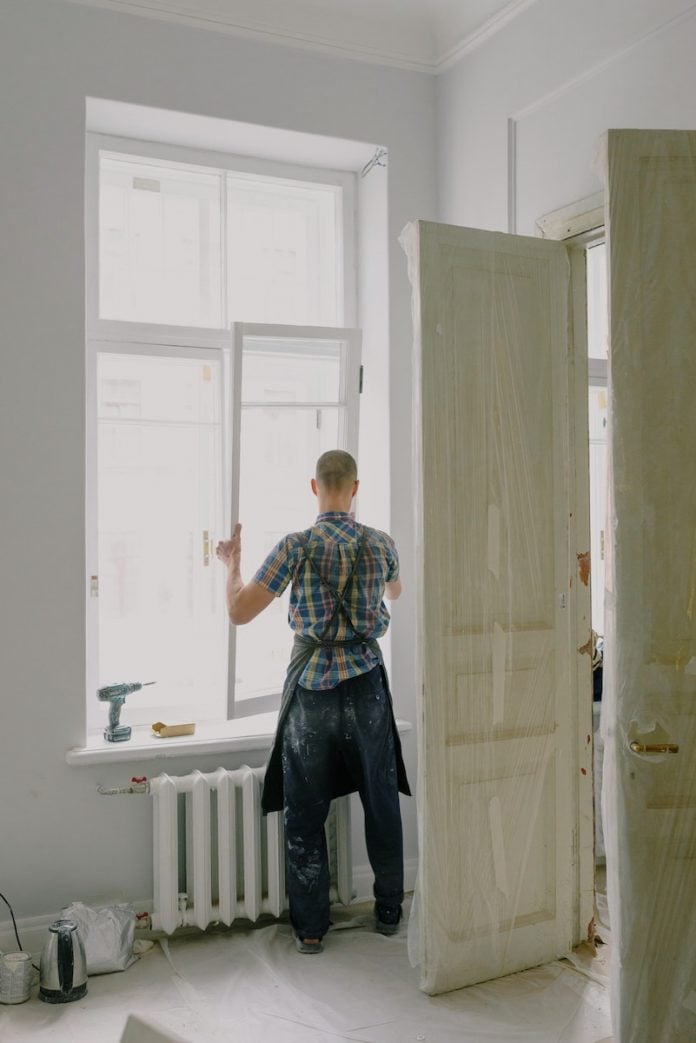11 Ways To Prepare Your Home For The Winter
Getting your home ready for the winter season takes few activities such as minor checks, repairs, and cleaning. Preparing your home for the winter, or winterization requires early action and months-long planning.
Here’s a rundown of the steps for ensuring that you and your family remain warm and cozy amid the dipping temperature.
Condition Your Heating System
An exceptionally designed fireplace means nothing if you don’t have a fully functional unit. A well-working fireplace doesn’t only emit heat. It shouldn’t also be the source of cold air leaks and other issues that impact the temperature in your home. Perform the following winter preparations even before the first cold breeze hits your skin:
- Clean the Chimney: If it’s been years since your last chimney-clearing duty, have professionals do it as early as possible. Obstructions may have formed in your chimney after a few months of being idle, so take them out. If the works get too overwhelming, consider hiring professionals for a better chimney sweep.
- Check if the Damper Works: An important component of a fireplace is a damper which is the vent that either closes or opens to allow oxygen in and let the smoke out. The damper is also responsible for letting your cooled or warmed air stay inside, preventing it from escaping through the chimney.
- Inspect your HVAC System: Any time before the winter is the best time to have your heating, ventilation, and air conditioning (HVAC) system checked and cleaned. Have it done by a professional if you haven’t inspected it for more than a year.
- Replace Filters. Don’t forget to clean your furnace and replace the air filters, as needed. Once filters are full of contaminants, they can’t perform their functions properly.
Make Some Small Repairs And Reinforcements
Do-it-yourself experts recommend homeowners to have major repairs as soon as possible, but ideally, this should be done in the summer when it’s sunny. Regardless, you can make these minor reinforcements anytime during pre-winter.
- Reinforce Your Doors and Windows: Prevent creaky doors and loose hinges from ruining your winter. Check your doors and windows before the biting cold rears its ugly head. Seal or caulk cracks around your home’s potential heat-escape routes.
Consider applying weather stripping to your doors and windows. These handy tools are made from metal, foam, rubber, or vinyl, which prevents light and air from escaping through the gaps. Weatherstripping can be useful for all seasons, not just during winter.
- Check your Electrical Systems: Besides making sure that your winter decorations get the attention it serves, set your sights on your power system. Make sure that there are no pinched or exposed wires, and that your outlets can resist moisture. Consider installing outlet gaskets for protection.
- Check and Repair Your Roof: If you have the right safety gear, go up and check whether your roof needs some tender, loving, care (TLC). By this, we suggest you check if the shingles are intact, and if the flashing is in good condition. Also, make sure to clear your gutters and downspouts of any obstructions to prevent clogging.
- Recondition Your Exterior: Also repair your patio or walkways before the onset of winter, as the weather can further worsen its conditions. Remember to resolve any repair issue as soon as possible.
The snow can leave the outside of your home almost invisible, covering your driveways and walkways. Consider placing markers on the edges of these areas to prevent you from crashing into your flower beds or garden bushes.
- Monitor Your Alarm and Security Systems: Winter can increase the risk of experiencing fire hazards in your home. Check if your smoke detectors are working, or if the battery needs to be replaced. At the same time, make sure that your fire extinguishers aren’t expired. Also, check if your security systems are work properly and can help you keep your family safe.
Insulate, Insulate, Insulate
Preparing your home for the winter means a lot of insulating. Water supply pipes during winter could get frozen and prevent water from flowing seamlessly. Heavy ice dams can form on your roof.
Additionally, an uninsulated home could allow the escape of as much as 25% of heat through the roof. Hence, these sections should be your priority for insulation.
- Insulate Your Attic and Walls: Heat rises towards your roof, that’s why insulating your attic and crawl spaces are crucial. Insulating your walls can help enhance your heating system’s energy efficiency. It can also help in preventing ice dam formation on your roof. Consider placing fiberglass insulation on these sections to protect your home.
- Protect Exposed Piping: Whether inside or outside your home, your pipes can get frozen or even burst. Prevent this from happening by insulating your pipes. Wrap it with electrical heating tape before placing foam sleeves. Exterior faucets and hoses need to be drained and insulated, too.
Final Thoughts
For the icy weather, you and your family should be able to rely on the heating systems with reinforced doors and windows, as well as smooth-flowing pipes. While most of the tips discussed in this article can be done by yourself, you can also seek professional help which may be needed in some cases such as insulating, conditioning, and cleaning different areas of your home.



